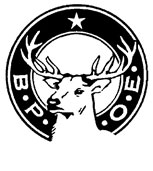Supporting young cancer scientists
 Long before the IU Simon Comprehensive Cancer Center was founded in 1992, the Indiana Elks Association was generously funding cancer research at IU School of Medicine. Over the past 75 years, Elks lodges from communities all over the state have worked together on their state major project to generate more than $5 million for cancer research at IU.
Long before the IU Simon Comprehensive Cancer Center was founded in 1992, the Indiana Elks Association was generously funding cancer research at IU School of Medicine. Over the past 75 years, Elks lodges from communities all over the state have worked together on their state major project to generate more than $5 million for cancer research at IU.
From golf outings to ladies’ luncheons to casino nights to Valentine’s Day dances, generations of Elks have worked tirelessly to support cancer research.
In more recent years, Elks funds have been directed specifically to young IU Simon Comprehensive Cancer Center scientists who are in need of start-up funding for their research careers. In 2008, the Elks committed to funding a new $1 million endowment that will permanently generate annual funding for young investigators and will encourage brilliant young people to pursue careers in cancer research.
The Indiana Elks Young Investigators Research Endowment supports young cancer researchers who are just getting their careers off the ground. The goal of the endowment is to ensure the children and grandchildren of Elks live in a world where they have access to highly-qualified experts to treat cancer and where advances in research have made cancer a far less terrifying diagnosis than it is today.
In recent years, the Elks have supported the IU Division of Hematology/Oncology Fellows. Fellows are medical doctors in their final three years of training to specialize in treating cancer. Each year, IU receives hundreds of applications for our five fellowship positions. Elks funding has helped grow the careers of these young physician-scientists by making it possible for them to attend key conferences focused on their specific area of cancer research and hold membership in important national organizations such as the American Society for Clinical Oncology and the American Society for Hematology. The generosity of the Elks has also helped cover fees related to IU fellows submitting abstracts of their research to various organizations so their work can be considered for presentations at conferences.
Finally, the Elks have supported these young investigators as they prepare for their licensing exams following fellowship by defraying the costs of preparation materials, including books and access to databases of practice exam questions.
By helping these brilliant young people launch careers in academic medicine, the Elks are ensuring that IU’s long history of impactful cancer research continues. These are the doctors who will care for our children and grandchildren someday and make discoveries that change the path of cancer treatment moving forward. We are grateful to the Elks for their investment in a future without cancer.
 Long before the IU Simon Comprehensive Cancer Center was founded in 1992, the Indiana Elks Association was generously funding cancer research at IU School of Medicine. Over the past 75 years, Elks lodges from communities all over the state have worked together on their state major project to generate more than $5 million for cancer research at IU.
Long before the IU Simon Comprehensive Cancer Center was founded in 1992, the Indiana Elks Association was generously funding cancer research at IU School of Medicine. Over the past 75 years, Elks lodges from communities all over the state have worked together on their state major project to generate more than $5 million for cancer research at IU.




